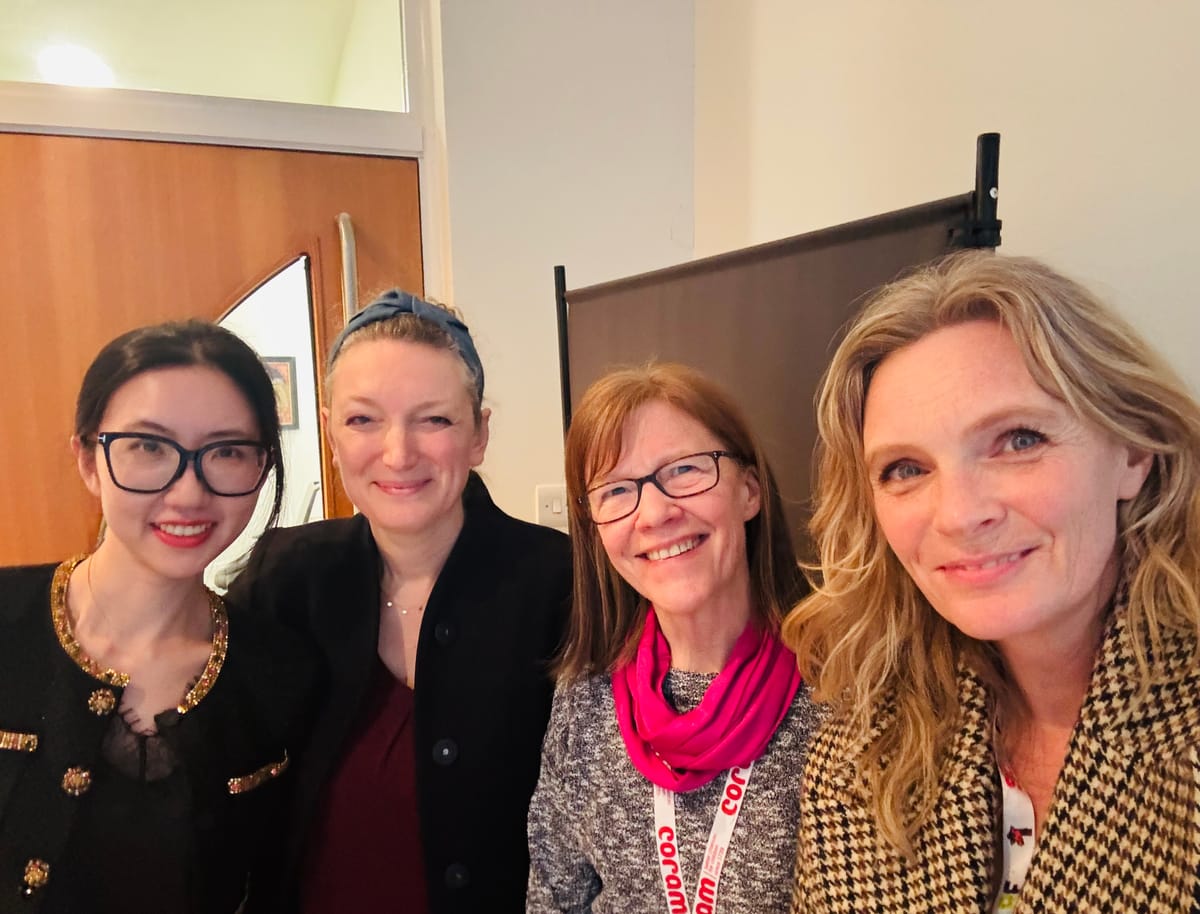
Over the last 18 months, Open Lab researchers have been working in partnership with Coram Life Education (CLE) to better understand children’s use of online digital media in relation to experiencing and navigating online harms. CLE are the UK’s leading charity provider of Personal Social Health and Economic (PSHE) education, supporting over 50,000 teachers and reaching over 600,000 pupils. CLE are part of Coram Group, the UK’s longest serving children’s charity, which Newcastle University has established a strategic research partnership with, to envision better opportunities and futures for young people grounded in evidence-based insight and impact-focused collaboration. Leading the collaboration are Jan Forshaw, MBE, Head of Education at CLE, with colleagues Justina Horne, Jenny Lorimer and Harriet Gill, and Abi Durrant, Co-Director of Open Lab, with colleagues Viana Zhang, Vasilis Vlachokyriakos and Sonu Fakiha.
The team have interviewed a diverse set of stakeholders across the UK, including children (aged 7 to 17) and their parents / carers, along with professional experts including teachers, healthcare professionals, charity representatives and policy informers contributing to work on the 2023 Online Safety Act and more recent Protection of Children (Digital Safety and Data Protection) Bill (2025).
With these stakeholders we have covered a wide range of topics. We have explored young people and families’ use of smartphones and social media, and how they identify and make sense of misinformation, disinformation, and fake news. We have heard about experiences of online harms and strategies for protecting oneself and others from harm. And our participants have expressed their opinions towards what we can do as a society to support young people to live well and thrive into the future.
One key theme emerging from our conversations is a collective concern about health impacts of young people’s use of interactive, screen-based media devices at home and for learning at school, and how algorithmic behaviour is influencing young people’s consumption of online media.
Ideas and opportunities are raised by young people for improving digital media design, along with critical reflection upon the current gaps in understanding and where further research and evidence-based action is needed.
The team worked with not-for-profit design agency Roots and Wings to capture and document our participants’ voices and stories. A video clip provides a snapshot of the perspectives and insight gathered through this work, which inspire future research directions.
“The most important thing is for kids to have a lot of experiences and then choose from those experiences. If you have a mixed diet, you turn off all the alerts for the kids, and then you say, ‘This is our tool, how are we going to play with it, how are we going to use it’? And understand there are some features that are risky – you can’t cut them out altogether, but you can actually gravitate away from them, and make it a priority, a political priority.”
– Baroness Beeban Kidron, Founder and President of 5Rights Foundation, Cross-bench Peer & Children’s Rights Activist
A number of these considerations were raised at a roundtable meeting convened at the House of Lords on 5th November 2025, by Baroness Kidron on behalf of Coram Life Education – about children’s wellbeing in a digital age, with contributions from distinguished panellists including Jan and a couple of our interviewees, along with professionals and advocates and attended by partners in this work including Abi and youth representatives. This meeting coincided with the publication of the UK Government’s Curriculum and Assessment Review on the same day, prompting mainstream media commentary about the importance for children and young people to feel supported and empowered in their technology interactions, though design for safety, literacy, creativity and relationship building.
This scoping work has been supported by EPSRC AGENCY (EP/WO32481/1), EPSRC Centre for Digital Citizens (EP/T022582/1) and EPSRC NortHFutures (EP/X031012/1), intersecting lines of inquiry around young people’s protection from online harms and supportive design directions for living happy and well. We thank our collaborators at Coram Life Education and everyone who kindly gave their time to take part in and facilitate the interviews.